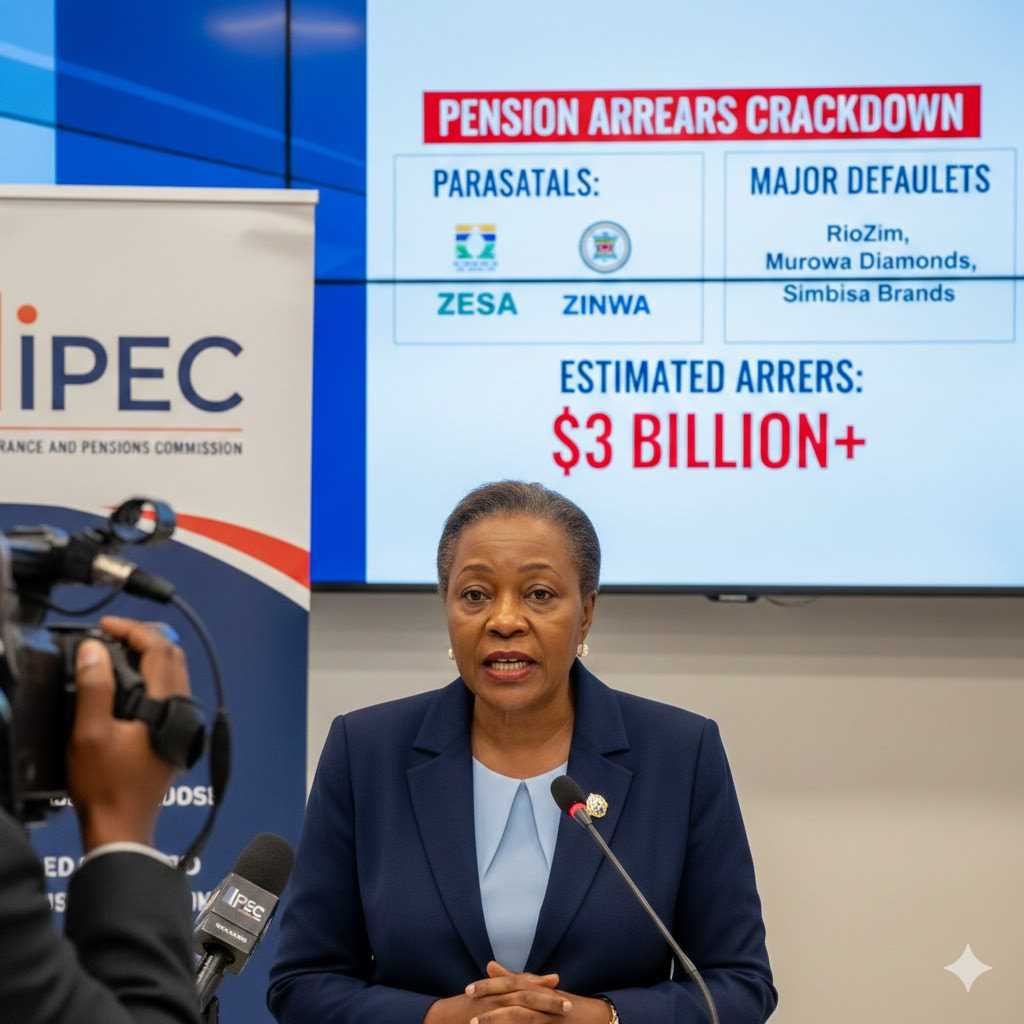
Nyashadzashe Ndoro
Chief Reporter
A Zimbabwean retiree's bid to recover a frozen US dollar investment has been rejected by the High Court, in a decision that could have far reaching implications for investors affected by the country's regulatory changes a few years ago.
The Exchange Control Directive of 2018, which included the 2% tax on money transfers, had a significant impact on companies and individuals in Zimbabwe. It introduced strict controls on foreign currency transactions and forced conversion of foreign currency accounts to local currency, resulting in significant losses for individuals and companies holding US dollar accounts and subsequent devaluation of assets.
The case, dismissed by High Court judge Justice Siyabona Musithu, was brought by retiree Shelly Makwiranzou against Old Mutual and other respondents, over the alleged conversion of her US$72,232.87 US dollar investment into local currency without her consent.
Old Mutual Limited, Reserve Bank of Zimbabwe and the Minister of Finance are cited as first to third respondents, respectively.
Old Mutual Unit Trust Management Company (Private) Limited, Stanbic Bank Zimbabwe Limited N.O. and Old Mutual Unit Funds Scheme are the fourth, fifth, and sixth respondents, respectively.
Makwiranzou, a former accountant, had invested US$72,232.87 in Old Mutual's Money Market Gross Fund in 2010. However, following the introduction of the Reserve Bank of Zimbabwe's Exchange Control Directive Number RT120/201 in 2018, her investment was allegedly converted into local currency without her consent.
Makwiranzou took Old Mutual and several other respondents to court, seeking an order compelling the company to pay her the original amount in US dollars, plus interest. She argued that her investment was not a bank account and should not have been affected by the Exchange Control Directive.
"On 4 October 2018, the second respondent issued the Exchange Control Directive No RT 120 of 2018, which ordered the separation of accounts based on source of funds. Foreign currency realised from offshore or foreign currency cash deposits were now to be incorporated into Nostro Foreign Currency Accounts (Nostro FCAS), while all Real Time Gross Settlement or mobile money transfers and bond notes and coins were to be credited into an RTGS.
Related Stories
The applicant contends that her investments by their nature, could not have been classified as an RTGS FCA. In any case, she further averred, her investment was not a foreign currency account, since she did not have a bank account with Old Mutual. Old Mutual was not a bank although it owned a bank called Central African Building Society (CABS). In short, the applicant's argument was that the Exchange Control Directive did not apply to investment accounts such as the one she held with the first respondent.
"The applicant claims that on 31 October 2018, the first respondent sent her a consolidated transaction statement which showed that her investment was US$72 232.87. After that communication, on 30 November 2018, 31 December 2018, 31 January 2019 and 28 February 2019, the first respondent sent her statements showing that it held on her behalf, the sum of $72 461.44 without denoting the currency. On 31 March 2019, she received a consolidated transaction statement showing that the first respondent was holding RTGS 73 358.56 on her behalf. On 30 April 2019, she received yet another statement showing that $73 571.47 was being held in her account," the judge noted.
The court, however, found that the application was defective, combining constitutional and non-constitutional issues. Despite this, the court could have proceeded with the main relief, but ultimately dismissed the application due to the applicant's failure to establish a cause of action against some respondents and her failure to amend her papers to plead a case against the joined respondents.
The court also noted that there was no contractual nexus between Makwiranzou and Old Mutual, as the relevant Trust Deed showed that the fourth respondent was the manager of the trust and the fifth respondent was a trustee. Additionally, Makwiranzou was aware of the existence of the trust deed and the participation of the fourth and fifth respondents but still persisted with her claim against Old Mutual.
"The applicant cannot therefore genuinely claim not to have been aware of the existence of the fourth respondent. At any rate, there was no need to seek the joinder of the fourth to sixth respondent if she was completely certain that her claim against the first respondent was sustainable and meritorious. It is for the foregoing reasons that the court determines that there is merit in the first, fourth, fifth and sixth respondent’s preliminary point on the absence of a cause of action against them. The applicant’s claim was poorly pleaded. She had a second bite of the cherry to regularise her claim when she sought the joinder of the relevant parties, but she inexplicably spurned it," Justice Musithu noted.
The court dismissed the application with costs on the ordinary scale, exercising its discretion to award costs rather than the legal practitioner and client scale as requested by the respondents' counsels.
The case has significant implications for investors in Zimbabwe who have seen their foreign currency investments affected by regulatory changes in recent years.
In 2020, Justice Happious Zhou ruled the Exchange Control Directive Number RT120/201 was invalid as it, "manifestly violates the right to property".
“It is offensive to any sense of justice that a person who holds money in a bank can wake up on any day to be told that his money means something else different from what it has always been. This drastic deprivation of existing rights is not what is contemplated by section 317 of the Constitution of Zimbabwe as constituting regulation of the monetary system, protecting the currency of Zimbabwe and implementing monetary policy,” Justice Zhou said.
Justice Zhou's ruling and other similar judgements were, however, nullified by a unanimous decision made by the Constitutional Court in June 2023, which backed the Exchange Control Directive Number RT120/201.

















Leave Comments